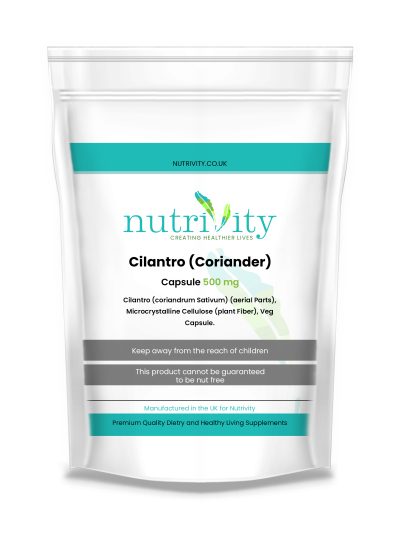What are the side effects of cilantro?
Unveiling the Side Effects of Cilantro: Exploring the Potential Health Concerns
Introduction
Cilantro, also known as coriander or Chinese parsley, is a popular herb used in various cuisines around the world. Known for its distinct flavor and aroma, cilantro adds a refreshing touch to dishes. While it offers numerous health benefits, it’s essential to understand that like any other ingredient, cilantro may have some side effects. In this article, we will delve into the potential side effects of cilantro and shed light on the associated health concerns.
Allergic Reactions
One of the most common side effects of cilantro is an allergic reaction. Some individuals may be allergic to cilantro, experiencing symptoms such as itching, hives, swelling, or even anaphylaxis, a severe and potentially life-threatening reaction. It’s crucial to be cautious if you have a known allergy to related plants like celery, carrots, or parsley, as cross-reactivity may occur.
Skin Sensitivity
Cilantro contains natural oils and compounds that can make the skin sensitive in some individuals. Direct contact with cilantro may lead to redness, rashes, or irritation. It is advisable to use gloves while handling large quantities of cilantro or seek alternatives if you have sensitive skin.
Digestive Discomfort
For certain individuals, consuming cilantro may cause digestive discomfort. This can manifest as bloating, gas, stomach cramps, or diarrhea. The high fiber content in cilantro, coupled with its potent flavor, may contribute to these symptoms. Moderation and proper cooking techniques can help minimize the chances of digestive issues.
Cilantro Coriander
Interference with Medications
Cilantro contains compounds that can interfere with certain medications. It may enhance the effect of blood thinners like warfarin or medications used to treat diabetes, potentially leading to adverse reactions. If you are on any medications, it is crucial to consult with a healthcare professional before incorporating cilantro into your diet.
Interaction with Nutrient Absorption
While cilantro is rich in beneficial nutrients like vitamins A, C, and K, it also contains compounds that can interfere with nutrient absorption in some individuals. Excessive consumption of cilantro may inhibit the absorption of certain minerals, such as iron and calcium, leading to potential deficiencies. Maintaining a balanced diet and moderate cilantro intake can help mitigate this risk.
Unveiling the Truth: Exploring the Side Effects of Cilantro
Cilantro, a vibrant herb renowned for its distinct flavor and aromatic allure, has long adorned cuisines worldwide. However, beyond its culinary prowess lies a lesser-known narrative – its potential side effects. As enthusiasts of this herb, it’s essential to delve deeper into its nuances for a well-rounded understanding of its impact on health.
Understanding Cilantro’s Composition
Before we unravel its side effects, let’s dissect cilantro’s composition. Rich in nutrients like vitamin A, vitamin K, and potassium, cilantro boasts antioxidant properties that offer various health benefits. Yet, like any potent ingredient, it also harbors potential drawbacks.
Potential Side Effects
Allergic Reactions: For some individuals, cilantro can trigger allergic responses, manifesting as skin rashes, itching, or swelling. Such reactions are often attributed to certain proteins present in cilantro.
Gastrointestinal Discomfort: Consuming cilantro in excessive quantities may lead to gastrointestinal discomfort, including nausea, diarrhea, or abdominal cramps. This reaction is commonly observed in individuals with sensitive stomachs.
Drug Interactions: Cilantro contains compounds that may interact with certain medications, such as blood thinners or antibiotics. These interactions can affect drug efficacy or exacerbate existing health conditions.
Oral Health Issues: In rare cases, prolonged consumption of cilantro may contribute to oral health concerns, such as increased sensitivity or gum irritation.
Navigating Cilantro Consumption
While these side effects merit attention, they are relatively uncommon and typically occur in susceptible individuals or with excessive consumption. For most people, moderate intake of cilantro as part of a balanced diet poses little to no risk.
Conclusion
Cilantro is a versatile herb that adds flavor and freshness to various dishes, but it is essential to be aware of its potential side effects. Allergic reactions, skin sensitivity, digestive discomfort, medication interference, and nutrient absorption issues are among the concerns associated with cilantro consumption. As with any ingredient, moderation is key, and if you experience any adverse reactions, it is advisable to seek medical advice.
In essence, while cilantro undeniably enhances culinary experiences, it’s prudent to remain cognizant of its potential side effects. By understanding its impact on health and consuming it mindfully, one can continue to savor its flavors without compromising well-being.
- Cilantro side effects
- Allergic reactions to cilantro
- Skin sensitivity from cilantro
- Digestive discomfort from cilantro
- Cilantro and medication interactions
- Cilantro and nutrient absorption
- Side effects of cilantro on skin
- Cilantro allergy symptoms
- Cilantro overdose symptoms
- Cilantro and gastrointestinal discomfort
- Cilantro interactions with medications
- Oral health issues from cilantro consumption
[Sassy_Social_Share]




